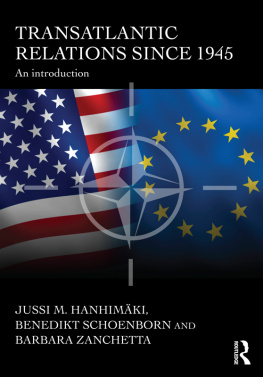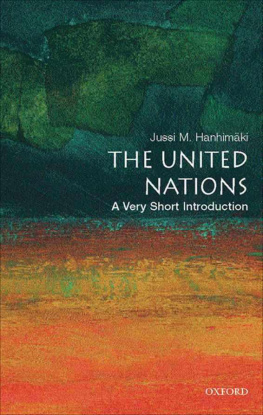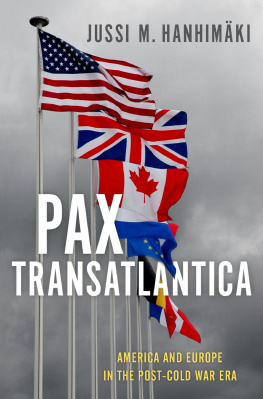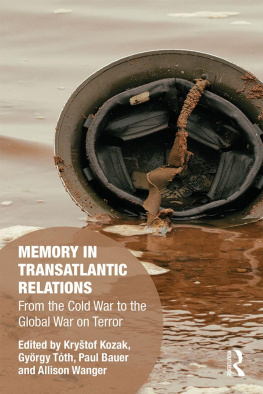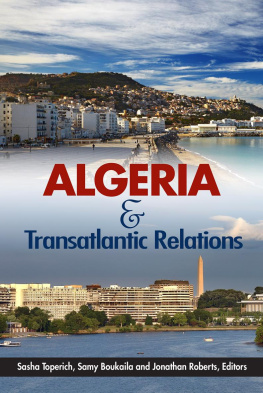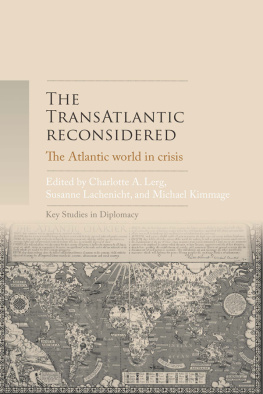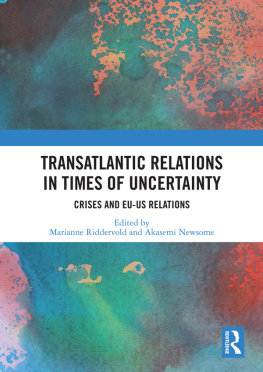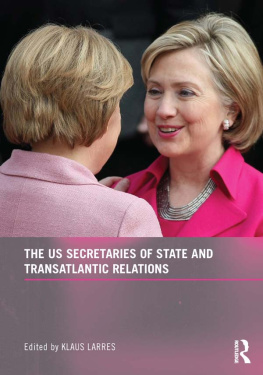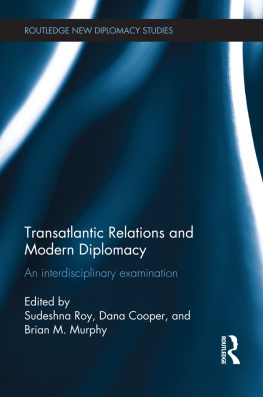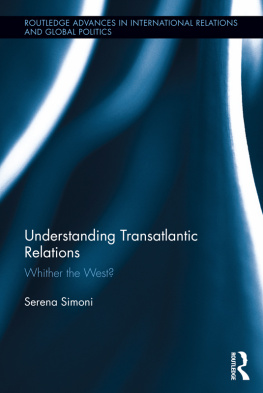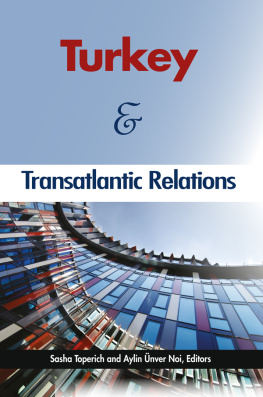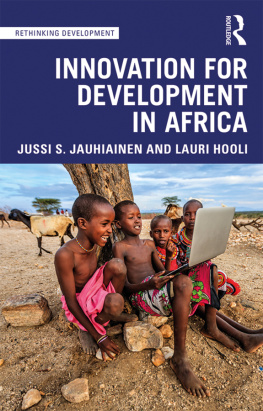Transatlantic Relations since 1945
Transatlantic Relations since 1945 offers a comprehensive account of transatlantic relations in the second half of the twentieth century (extending to the present day).
The transatlantic relationship has been the bedrock of international relations since the end of World War II. This new textbook focuses on the period since the defeat of Nazi Germany, when the multitude of links between the United States and Western Europe were created, extended and multiplied. Written in an accessible style, it emphasizes transatlantic interactions, avoiding the temptation to focus on either US domination or European attempts to resist an American effort to subjugate the old continent. That influence has travelled across the Atlantic in both directions is one of the starting points of this text.
Structured chronologically, the book is built around three key themes:
- Security: from the Cold War to the War on Terror
- Economics: integration and competition
- Soft power and transatlantic relations.
This book will be of great interest to students of transatlantic relations, NATO, US Foreign Policy, Cold War history, European history and IR International history.
Jussi M. Hanhimki is Professor of International History and Politics at The Graduate Institute of International Studies (GIIS), Geneva. He is author/co-author of six books and won the 2002 Bernath Prize from the Society for Historians of American Foreign Relations.
Benedikt Schoenborn is a Senior Research Fellow at the University of Tampere, Finland, and a former Fellow of the Norwegian Nobel Institute. He is the author of various articles on Western Europe in the Cold War and of the prize-winning book La msentente apprivoise: De Gaulle et les Allemands.
Barbara Zanchetta is a Researcher at the Finnish Institute of International Affairs in Helsinki, focusing on US foreign policy, transatlantic relations and out of area issues.
At a time of alarming turbulence in the global economy and of gloomy pessimism about the overall state of the international system, this book stands as a useful reminder of the complexities and the frailties, but also of the remarkable resilience and the persistent importance, of the Transatlantic partnership in the history of the world since 1945.
Leopoldo Nuti, Roma Tre University, Italy
Although a central aspect of the world since 1945, the Transatlantic relationship has lacked a good introductory text. This book is therefore a hugely welcome publication.
Piers Ludlow, London School of Economics, UK
Transatlantic Relations since 1945
An introduction
Jussi M. Hanhimki, Benedikt Schoenborn and Barbara Zanchetta
First published 2012
by Routledge
2 Park Square, Milton Park, Abingdon, Oxon OX14 4RN
Simultaneously published in the USA and Canada
by Routledge
711 Third Avenue, New York, NY 10017
Routledge is an imprint of the Taylor & Francis Group, an informa business
2012 Jussi M. Hanhimki, Benedikt Schoenborn and Barbara Zanchetta
The right of Jussi M. Hanhimki, Benedikt Schoenborn and Barbara Zanchetta to be identified as authors of this work has been asserted by them in accordance with sections 77 and 78 of the Copyright, Designs and Patents Act 1988.
All rights reserved. No part of this book may be reprinted or reproduced or utilized in any form or by any electronic, mechanical, or other means, now known or hereafter invented, including photocopying and recording, or in any information storage or retrieval system, without permission in writing from the publishers.
Trademark notice: Product or corporate names may be trademarks or registered trademarks, and are used only for identification and explanation without intent to infringe.
British Library Cataloguing in Publication Data
A catalogue record for this book is available from the British Library
Library of Congress Cataloging-in-Publication Data
Hanhimki, Jussi M., 1965
Transatlantic relations since 1945 : an introduction / Jussi M. Hanhimaki,
Barbara Zanchetta and Benedikt Schoenborn.
p. cm.
Includes bibliographical references and index.
1. Europe--Foreign relations--United States--Textbooks. 2. United States--Foreign relations--Europe--Textbooks. 3. Europe--Foreign relations--1945---Textbooks.
4. United States--Foreign relations--1945-1989--Textbooks. 5. United States--Foreign relations--1989---Textbooks. I. Zanchetta, Barbara, 1976- II. Schoenborn, Benedikt. III. Title.
| D1065.U5H262012 | 327.7304--dc23 |
2011042694
ISBN13: 978-0-415-48697-2 (hbk)
ISBN13: 978-0-415-48698-9 (pbk)
ISBN13: 978-0-203-12139-9 (ebk)
Figures, tables and boxes
Figures
Tables
Boxes
Notes on Authors
Jussi M. Hanhimki is Professor of International History at The Graduate Institute of International and Development Studies in Geneva, Switzerland, and Finland Distinguished Professor (Academy of Finland). His publications include The Handbook of Transatlantic Security (2010), The United Nations: A Very Short Introduction (2008) and The Flawed Architect: Henry Kissinger and American Foreign Policy (2004).
Benedikt Schoenborn is a Senior Research Fellow at the University of Tampere, Finland, and a former Fellow of the Norwegian Nobel Institute. He is the author of various articles on Western Europe in the Cold War and of the prize-winning book La msentente apprivoise: De Gaulle et les Allemands (2007). He is currently preparing a monograph on Willy Brandt and the German Question.
Barbara Zanchetta is a Researcher at the Finnish Institute of International Affairs in Helsinki. She has published widely on US foreign policy, transatlantic relations and out of area issues. She is completing a book titled From Dominance to Leadership: The Transformation of American Power in the 1970s.
Acknowledgements
Although only one of the authors is Finnish, this work was conceived and mostly written in Finland. The idea for this book emerged when the three of us were collaborating on a research project entitled Conflict and Community: Transatlantic Relations in the Long Twentieth Century, hosted by Tampere University and funded by the Academy of Finland. We are grateful for the financial and institutional support of these institutions, as well as to the colleagues and staff at our other institutional homes: the Graduate Institute of International and Development Studies in Geneva, and the Finnish Institute of International Affairs in Helsinki. In particular, we would like to acknowledge the unfortunate students who endured our joint or individual teaching of transatlantic relations at the Graduate Institute and at the universities of Tampere and Helsinki. It is their curiosity that ultimately motivated us to complete this book alongside many other duties.
The History Department at Tampere University was, ultimately, the home of this project. We are especially grateful for the opportunity to share our ideas in the many sessions of Ollin klubi, a series of seminars organized by our project. Moreover, we are thankful for the support in the organization of the international conference Conflict and Community: Transatlantic Relations during the Cold War, held in Tampere in May 2008, during which many of the issues covered in this book were heatedly debated among scholars. We would like to particularly acknowledge the many colleagues and friends who cheered us on, in one way or another, during our respective stays at Pinni B: Touko Berry, Pertti Haapala, Risto Heiskala, Marjatta Hietala, Miia Ijas, Christian Krtzl, Risto Kunnari, Sari Pasto, Katri Sieberg and Olli Vehvilinen (whose name our seminar respectfully borrowed). A special thanks to Virginia Mattila for help with editing several of the chapters.


